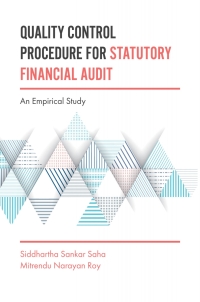Question
1. The risk free rate of return Rf is 9 percent. The expected rate ofreturn onthemarket portfolio Rm is 13 percent. The expected rate of
1. The risk free rate of return Rf is 9 percent. The expected rate ofreturn onthemarket portfolio Rm is 13 percent. The expected rate of growth for the dividend of Platinum Ltd. is 7 percent. The last dividend paid on the equity stock of firm A was $ 2.00. Thebetaof Platinum Ltd. equity stock is 1.2.
(i) What is the equilibrium price of the equity stock of Platinum Ltd.?
(ii) How would the equilibrium price change when
The inflation premium increases by 2 percent?
The expected growth rate increases by 3 percent?
The beta of Platinum Ltd. equity rises to 1.3?
Answer all the MCQ in proper sequence in reference to managerial accounts:
2. Cycle of Financial Planning closes with:
(a) Preparation of Projected Statements,
(b) Preparation of Actual Statements,
(c) Comparison of Actual with Projected,
(d) Ordering the workers that projected figures m materialize.
3. Which of coming up next isn't valid for money Budget?
(a) That lack or overabundance of money would show up in a specific period.
(b) All inflows would emerge before outpourings for those periods.
(c) Only income nature incomes are appeared.
(d) Proposed issue of offer capital in appeared as an inflow
4. Capital Budgeting is a piece of:
(a) Investment Decision,
(b) Working Capital Management,
(c) Marketing Management,
(d) Capital Structure.
5. Capital Budgeting manages:
(a) Long-term Decisions,
(b) Short-term Decisions,
(c) Both (a) and (b),
(d) Neither (a) nor (b).
6. Which of coming up next isn't utilized in Capital Budgeting?
(a) Time Value of Money,
(b) Sensitivity Analysis,
(c) Net Assets Method,
(d) Cash Flows.
7. Capital Budgeting Decisions are:
(a) Reversible,
(b) Irreversible,
(c) Unimportant,
(d) All of the abovementioned.
8. Which of coming up next isn't fused in Capital Budgeting?
(a) Tax-Effect,
(b) Time Value of Money,
(c) Required Rate of Return,
(d) Rate of Cash Discount.
9. Which of coming up next is anything but a capital planning choice?
(a) Expansion Program,
(b) Merger,
(c) Replacement of an Asset,
(d) Inventory Level.
10. A sound Capital Budgeting method depends on:
(a) Cash Flows,
(b) Accounting Profit,
(c) Interest Rate on Borrowings,
(d) Last Dividend Paid.
11. Which of coming up next is anything but a significant expense in Capital Budgeting?
(a) Sunk Cost,
(b) Opportunity Cost,
(c) Allocated Overheads,
(d) Both (a) and (c) above.
Step by Step Solution
There are 3 Steps involved in it
Step: 1

Get Instant Access to Expert-Tailored Solutions
See step-by-step solutions with expert insights and AI powered tools for academic success
Step: 2

Step: 3

Ace Your Homework with AI
Get the answers you need in no time with our AI-driven, step-by-step assistance
Get Started


